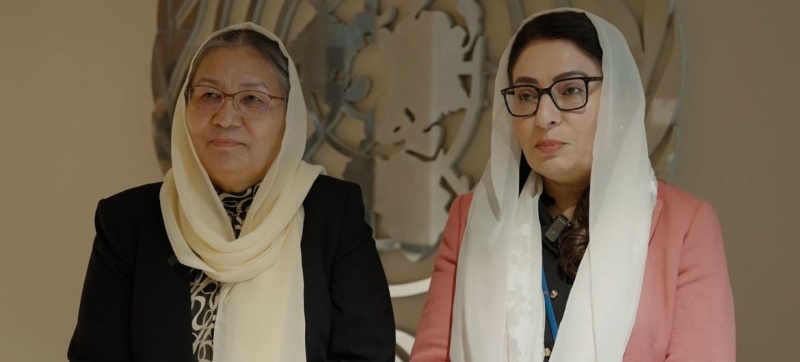
Habiba Sarabi and Asila Wardak held high-ranking positions in the Afghan government before the Taliban took over. INTERVIEW | “The Taliban’s treatment of women is un-Islamic” Women
Asila Wardak is a former employee of the Afghan Foreign Ministry who lost her job after the Taliban came to power in the country. Wardak believes that the Taliban’s treatment of women is un-Islamic and calls on the international community, especially Islamic countries, to do more to persuade the Taliban to ease restrictions.
Meanwhile, the situation of women in Afghanistan continues to deteriorate. They are now prohibited from receiving an education and working, from participating in public, political and economic life, and from moving freely without the accompaniment of male relatives. “What the Taliban are doing in Afghanistan today is contrary to Islam. It is not in religion, in our culture. “We believe that countries can play a big role in working with them, in negotiating with them, especially Islamic countries,” Wardak stressed in an interview with Mehbooba Khan of the UN News Service, which took place on the sidelines of the UN High-Level Week.
Read also:
Otunbayeva: Afghan de facto authorities’ policies worsen humanitarian crisis in the country
“All women and girls are forbidden to even speak, to leave their homes, they cannot go to school. This is the Taliban’s own interpretation [of the Koran] and the terrorist groups’,” she continued, adding that the very existence of such an interpretation of Islam poses a danger to Muslim communities around the world.
At the same time, the UN News Service interlocutor is convinced that if you actively work with the Taliban, you can achieve success. “The Taliban spent so many years in Pakistan, where Benazir Bhutto was prime minister,” she recalled. “The Taliban spent most of their lives in Qatar, where women can drive, where women are part of society and participate in political life.” “I think we just need to increase the pressure on the Taliban,” she added.
Asila Wardak called on delegations from around the world, especially Muslim countries, to visit Afghanistan more often. “They should also involve more women, more women scholars, to talk directly to the Taliban to show that the true face of Islam is equality,” she suggested.
Another participant in the UN High-Level Week, Habiba Sarabi, former Minister of Women’s Affairs of Afghanistan and former Governor of Bamyan Province, believes that the Taliban need to be reminded of their obligation to respect documents signed by the Afghan authorities. “Gender apartheid is unacceptable,” she said. “But inclusivity is not observed with regard to other groups of the population either. For example, representatives of ethnic minorities are excluded from all spheres of life. Human rights must be respected.”
